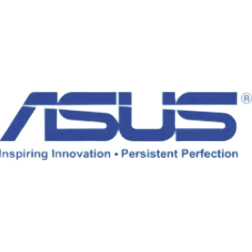
What's the best choice Gainward GeForce GTX 1070 Phoenix GLH or ASUS ROG Strix Radeon RX 570 8G? Which graphics card is faster?
We have prepared a comparison to help you choose the best graphics card. Compare their specifications and benchmarks.
Gainward GeForce GTX 1070 Phoenix GLH has a maximum frequency of 1.670 GHz+ 11 %. Memory size 8 GB. Memory type GDDR5. Released in Q2/2016.
ASUS ROG Strix Radeon RX 570 8G has a maximum frequency of 1.178 GHz+ 1 %. Memory size 8 GB. Memory type GDDR5. Released in Q2/2020.
 Reasons to consider
Reasons to consider Place in the overall ranking
(based on several benchmarks)
Higher clock speed
Around 29% better clock speed
Common positions Gainward GeForce GTX 1070 Phoenix GLH GPU in popular benchmarks, for comparison with other models.
 Reasons to consider
Reasons to consider Place in the overall ranking
(based on several benchmarks)
Common positions ASUS ROG Strix Radeon RX 570 8G GPU in popular benchmarks, for comparison with other models.
 Gainward GeForce GTX 1070 Phoenix GLH
Gainward GeForce GTX 1070 Phoenix GLH

Comparison of basic technical data of graphics cards Gainward GeForce GTX 1070 Phoenix GLH and ASUS ROG Strix Radeon RX 570 8G, chip, information processing units.
Comparison of the amount of memory on board graphics cards. The more the better.
Let's compare the memory frequency of graphics cards Gainward GeForce GTX 1070 Phoenix GLH and ASUS ROG Strix Radeon RX 570 8G. The higher the better.
Connectors, the number of thermal watts emitted in normal mode and at overclocking.
Types and sizes of coolers for graphics card cooling system Gainward GeForce GTX 1070 Phoenix GLH and ASUS ROG Strix Radeon RX 570 8G.
Connectivity and connections.
Technical data that is used to its full potential in computer games.
Built-in support for video and image compression standards.
The difference in size, weight and slot of the compared devices
Comparison of interfaces and release dates for GPU ASUS ROG Strix Radeon RX 570 8G and Gainward GeForce GTX 1070 Phoenix GLH.
Based on the results of several popular benchmarks, you can more accurately estimate the performance difference between Gainward GeForce GTX 1070 Phoenix GLH and ASUS ROG Strix Radeon RX 570 8G.
Compare synthetic benchmarks and choose the best graphics card for you!